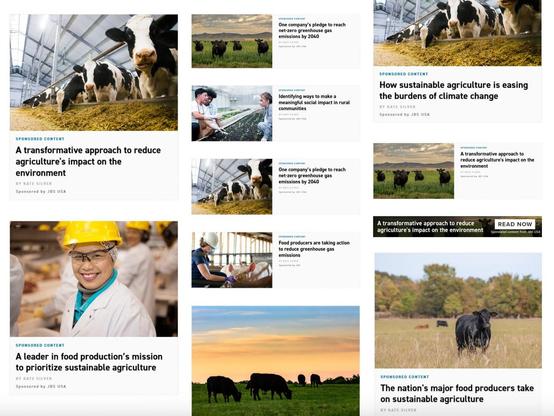"The American Beef Industry Understood Its Climate Impact Decades Ago"
https://insideclimatenews.org/news/14032025/american-beef-industry-knew-climate-impact-decades-ago/
People need to know about the anti-science and pseudoscience promoted by the meat industry, especially the cow meat industry, to hide the non-slaughter horrors of their bloody industry.
<💬>
Jacquet, a professor of environmental science and policy at the University of Miami, noted that the 2006 UN report represented an inflection point, not only making the public aware of livestock’s climate impact, but putting the industry on notice that it could potentially be targeted for regulation. The report said that livestock’s climate emissions—which come from converting forests to pasture, growing feed, methane-emitting cow burps and manure storage—were about 18 percent of the global total, more even than the transportation sector.
</💬>
<💬>
In 1989—the year after NASA’s James Hansen famously told Congress that climate change posed a global threat—the Environmental Protection Agency held a workshop focusing on methane emissions from livestock and, soon after, published a report, “Reducing Methane Emissions from Livestock.” The report said that livestock were a major source of methane and estimated that a 50 percent decrease in global emissions from livestock would yield huge benefits for stabilizing this especially potent greenhouse gas. Tucked into an appendix was the following suggestion: “Reducing methane emissions from ruminants should be pursued as part of an overall investigation into alternatives for reducing future global warming and its impacts.”
</💬>
<💬>
Jacquet and her co-authors note that representatives from the meat and dairy industry attended the 1989 EPA workshop, including a member of the National Cattlemen’s Association. Several months and a handful of planning meetings later, the association, which is the country’s biggest beef lobby and now known as the National Cattlemen’s Beef Association, or NCBA, developed a “Strategic Plan on the Environment” to counter anticipated public relations problems or regulations related to climate change. The plan included suggestions to reach out to “key influencers” with research and positive messaging about the industry’s environmental benefits.
</💬>
...
<💬>
In a separate study, published this week, Jacquet and another University of Miami researcher, Loredana Loy, trace the meat industry’s efforts to derail advocacy groups’ attempts to persuade the public to eat less meat as a climate strategy. These attempts include the Beyond Beef campaign and others, including Diet for a New America and Meatless Monday.
</💬>
<💬>
The study says the livestock industry took a different approach than the oil and gas industry, which tried to convince the public it was only continuing to develop fossil fuels because consumers called for them. The livestock industry, on the other hand, tried to convince consumers that their dietary choices would make no difference.
</💬>
#meat #beef #bigMeat #fossil #fossilFuels #climate #GHG #emissions #globalWarming #diet #disinformation #greenwashing #misinformation #meatinformation #skeptic #corporateInterests #meatBased #plantBased #diet #entericEmissions #methane #livestock #regulations #pasture #environment #EPA
